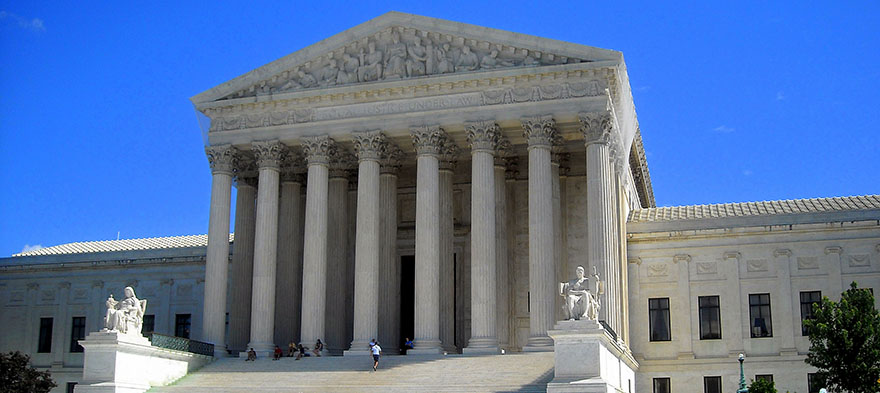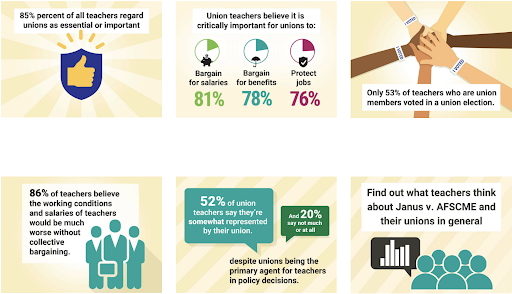
Jun 13, 2018 12:00:00 AM
by Isaiah Sago
Teachers are the first individuals that people think of when it comes to education, yet our perspectives are often the last considered when it comes to education policy. From student discipline to teacher evaluation, in most cases it’s only after we have been directed to put policies into practice that decision-makers solicit our feedback in a meaningful way.
Yet educators’ responsibility to our students. Our invaluable, on-the-ground perspective and our right to speak up as professionals challenge this status quo to push back against policies that do not serve children or teachers.
As a public school educator for the last 10 years, I have leveraged opportunities to share my classroom expertise with education policymakers to inform their decisions. And that’s why I was delighted when Educators for Excellence (E4E), a teacher-led organization, asked me and 11 other teachers to help create a nationally representative survey of U.S. public school teachers to gain insight on important education issues. Meeting via a series of video calls, our group had the opportunity to develop topics and questions relevant to teachers nationwide.
For too long, [pullquote]researchers, policymakers and the public have engaged in education decision-making without including teachers’ valuable insight.[/pullquote] We are at a crossroads in schools nationwide confronting policy recommendations that can influence millions of classrooms across the country, from potentially arming teachers to addressing significant racial discipline disparities. Making wise decisions and finding long-term solutions depends on our ability to tap into educators’ experience and insight.
It is fundamental for teacher input to be considered when drafting policy recommendations. And what better way to capture the opinions and knowledge of the nation’s teachers than through a survey, which covers a range of topics in education.
Finally, a comprehensive survey written for teachers, by teachers.
Just as we informed this survey, the full results, to be revealed in August, can inform public policy and serve all schools. Additionally, we believe it is important to engage with data relating to the Janus v. AFSCME case as educators prepare for a decision that could impact instructional resources and teacher unions.
Similar to 2016’s Friedrichs v. California Teachers Association, Janus v. AFSCME is a case about public labor unions’ right to collect mandatory fees from non-union members for services unions provide all employees, including equitable representation for wages and benefits, grievances and disciplinary matters.
If the Supreme Court rules that all union activities constitute political speech, it would become unconstitutional for unions to charge compulsory dues. Given the major implications for future teacher union revenue and membership, it is vital that union leaders understand what teachers think about unions, which union activities have the greatest value, and how to best represent us.
Teachers’ survey responses confirm what many of my colleagues and I also believe:

It is clear that teachers depend on unions, yet to keep us as members, our unions will also need to ensure the policies they support are aligned with our needs and preferences. [pullquote position="right"]During changing educational times, I lean on radical hope.[/pullquote]
I hope our leaders—and, in particular, our union leaders—understand the implications of these survey responses and leverage teachers’ expertise to make informed decisions for the future.
I hope this survey (re)empowers teachers to believe our voice matters. Strengthening schools must be a unified effort that amplifies teacher voices.
Isaiah Sago has taught math at Dorothy V. Johnson Community Day High School since its opening nine years ago and is a member of E4E-Los Angeles.
The story you tell yourself about your own math ability tends to become true. This isn’t some Oprah aphorism about attracting what you want from the universe. Well, I guess it kind of is, but...
If you have a child with disabilities, you’re not alone: According to the latest data, over 7 million American schoolchildren — 14% of all students ages 3-21 — are classified as eligible for special...
The fight for educational equity has never been just about schools. The real North Star for this work is providing opportunities for each child to thrive into adulthood. This means that our advocacy...
Your donations support the voices who challenge decision makers to provide the learning opportunities all children need to thrive.
Ed Post is the flagship website platform of brightbeam, a 501(c3) network of education activists and influencers demanding a better education and a brighter future for every child.
© 2020–2024 brightbeam. All rights reserved.
Leave a Comment